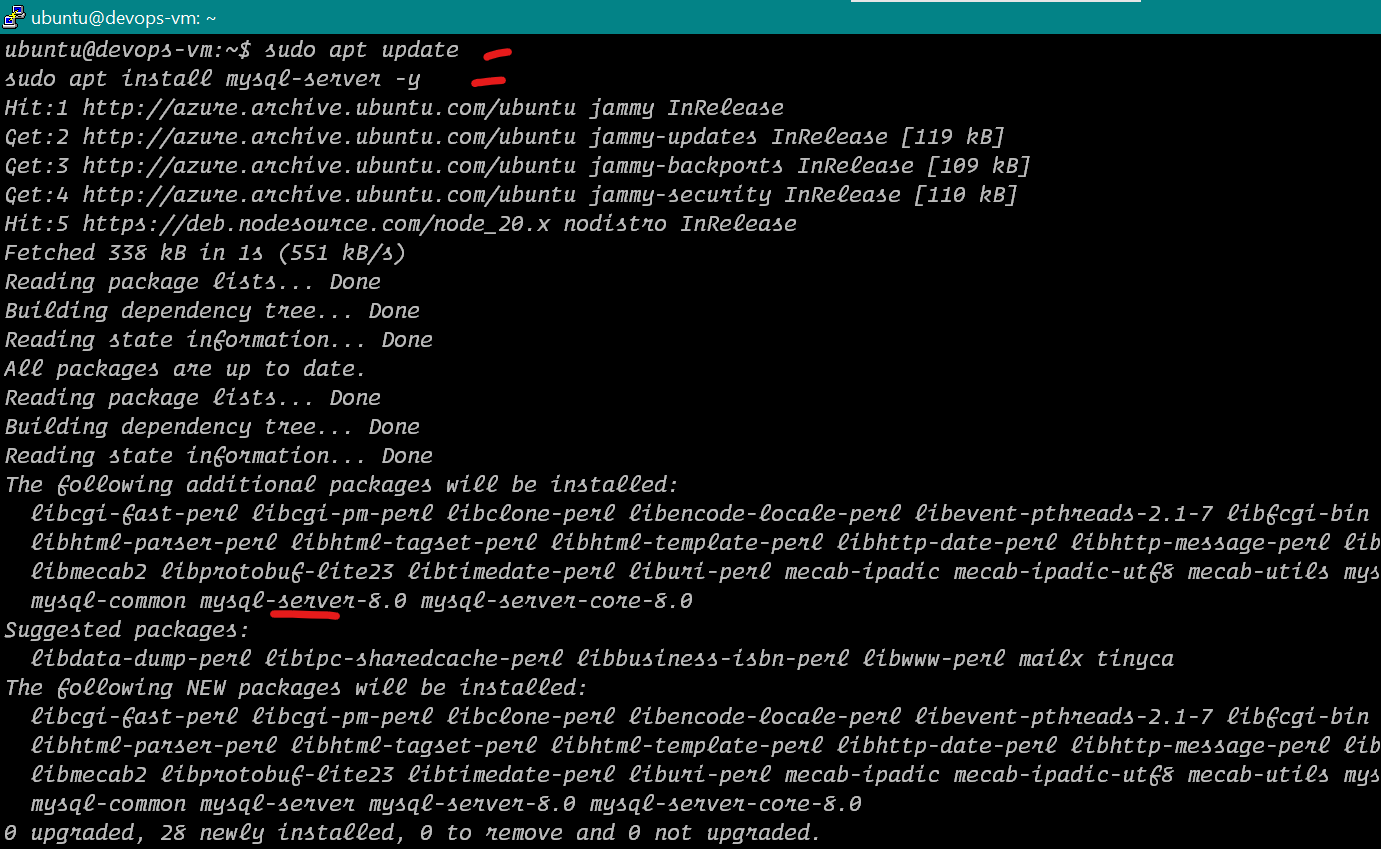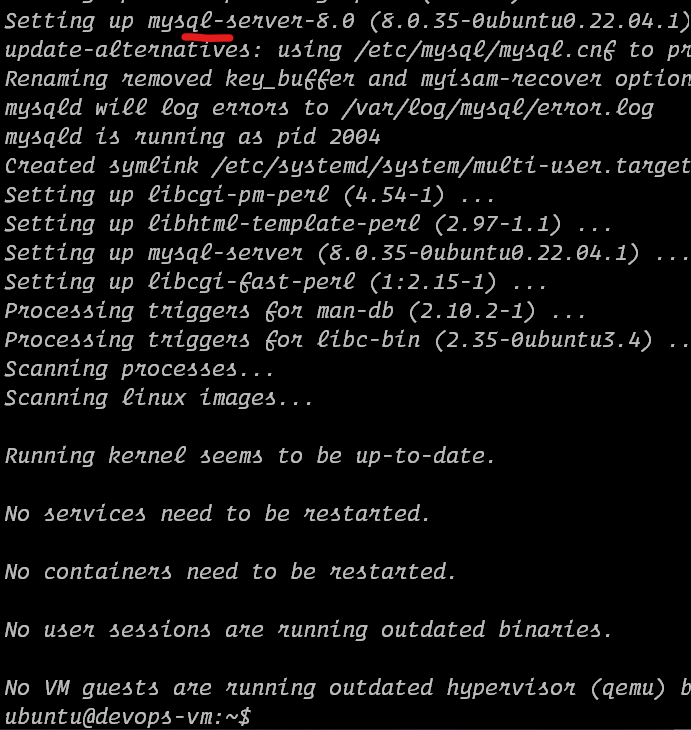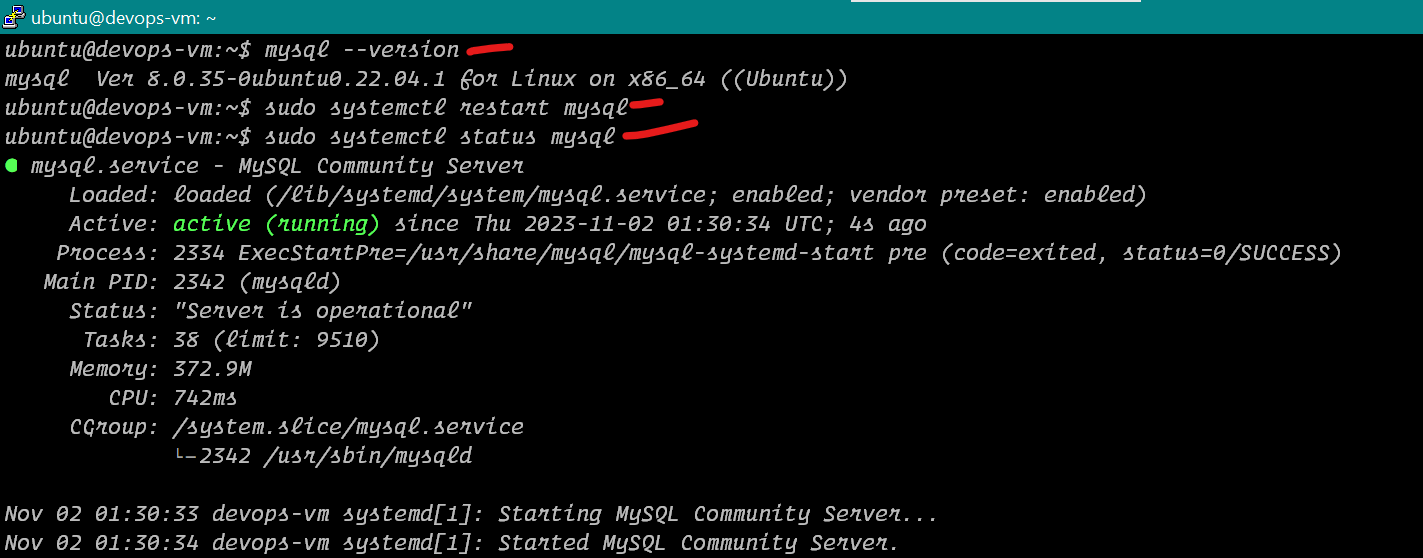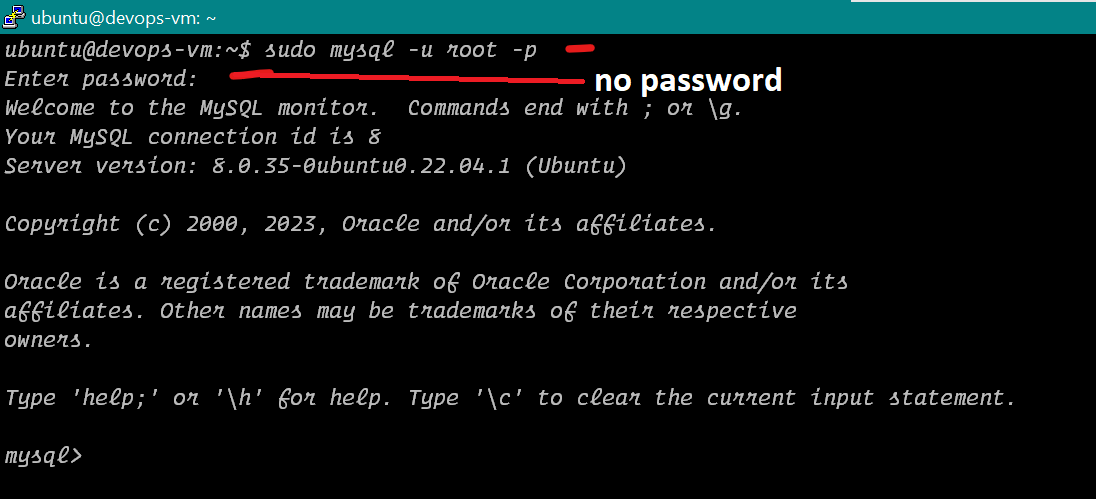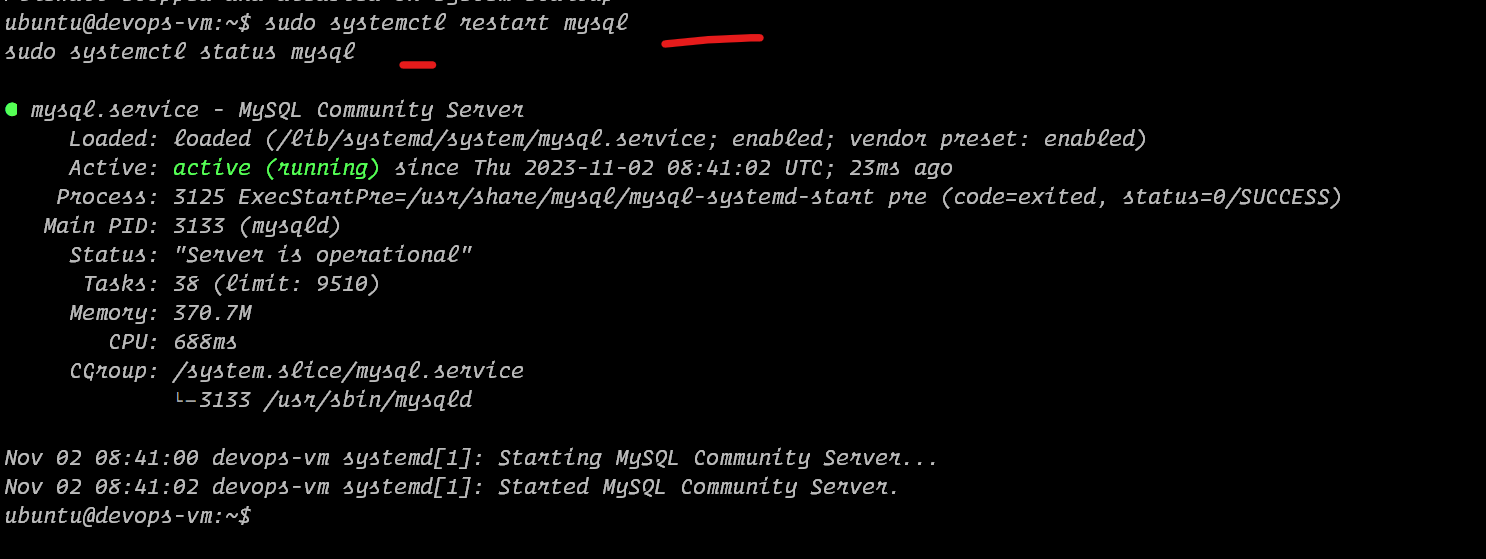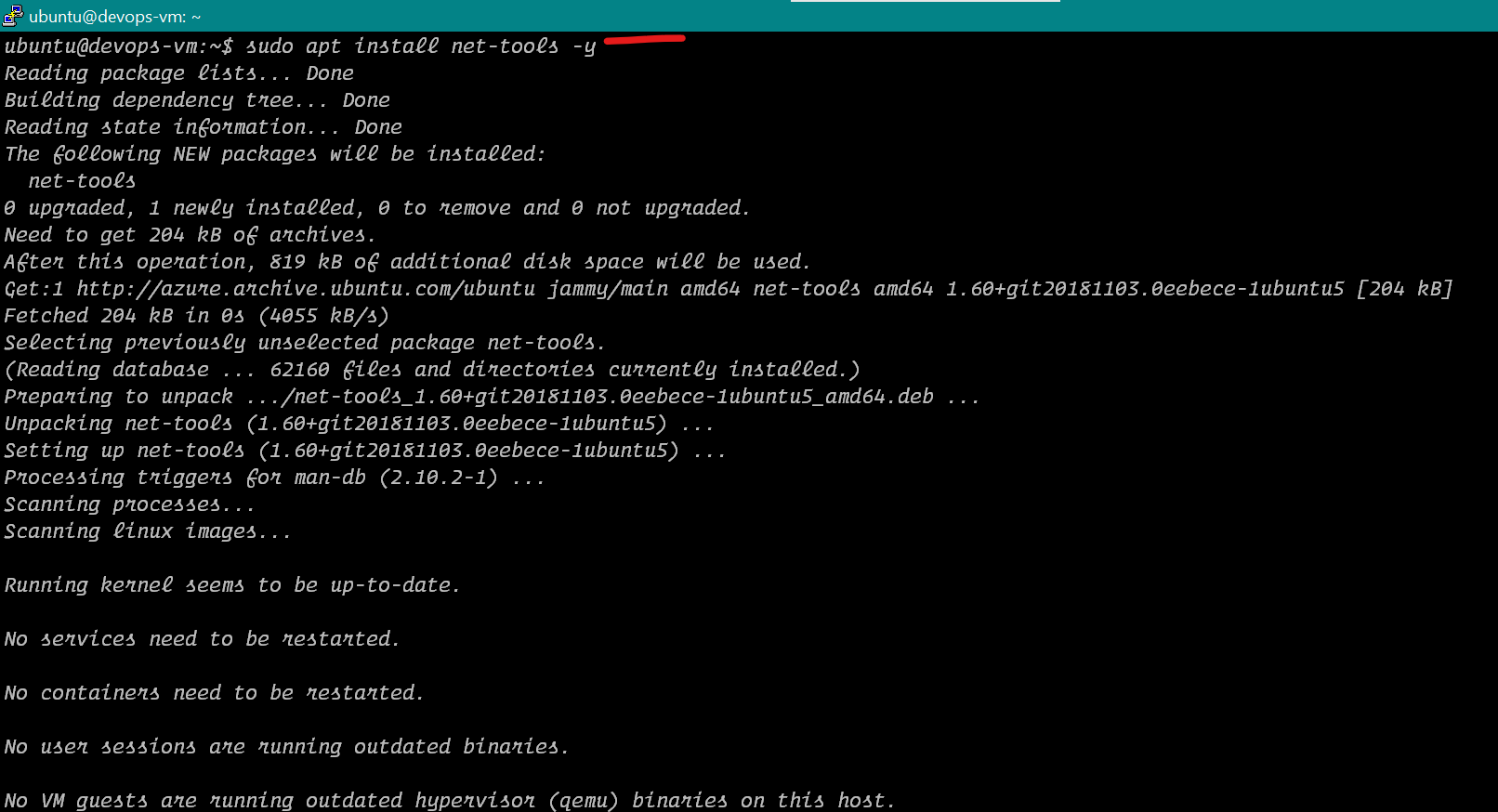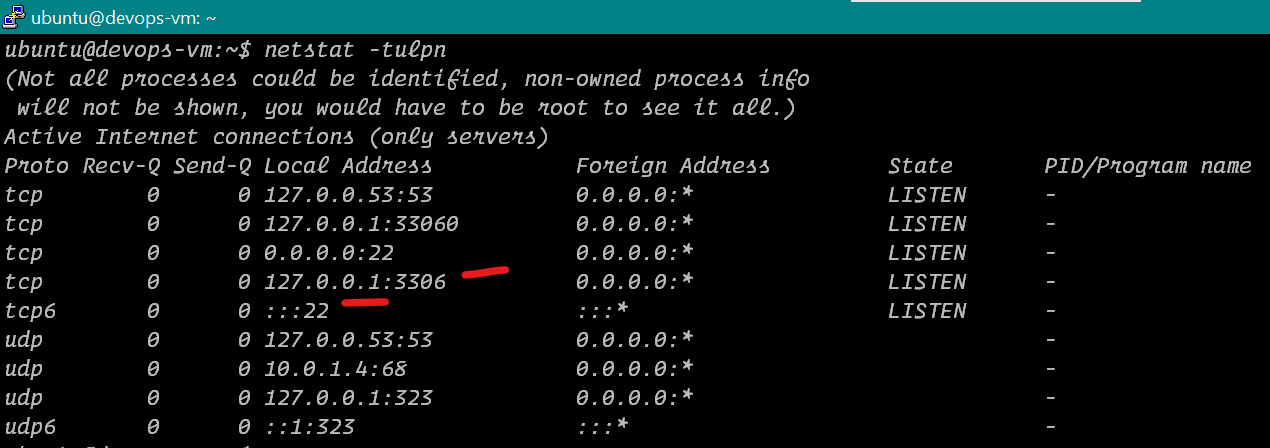# Step 1
sudo apt update
sudo apt install mysql-server -y
mysql --version
# Step 2
sudo systemctl restart mysql
sudo systemctl status mysql
# Step 3 (Only run this once to create a password for root account)
sudo mysql -u root -p
# modifying mysql behavior
# run inside the mysql> cli
# create root user password
ALTER USER 'root'@'localhost' IDENTIFIED WITH mysql_native_password BY 'P@ssw0rd';
# exit mysql after providing password
exit
# now we can use bash script to run the sql commands with root user and password we created
# disable firewall temporarily
sudo ufw disable
# restart service to apply
sudo systemctl restart mysql
sudo systemctl status mysql
# Run the below command In normal putty, Not in mysql
sudo mysql -u root -p'P@ssw0rd' -e "CREATE USER 'root'@'%' IDENTIFIED BY 'P@ssw0rd'; GRANT ALL PRIVILEGES ON *.* TO 'root'@'%' WITH GRANT OPTION; FLUSH PRIVILEGES;"
# Step 4
mysql -u root -p'P@ssw0rd' -e "create database devops_demo; use devops_demo;"
# Step 6
# verify database and tables are created
mysql -u root -p'P@ssw0rd' -e "select * from devops_demo.student;"
# check the ports opened
sudo apt install net-tools -y
netstat -tulpn
# Start up the Java API to test
